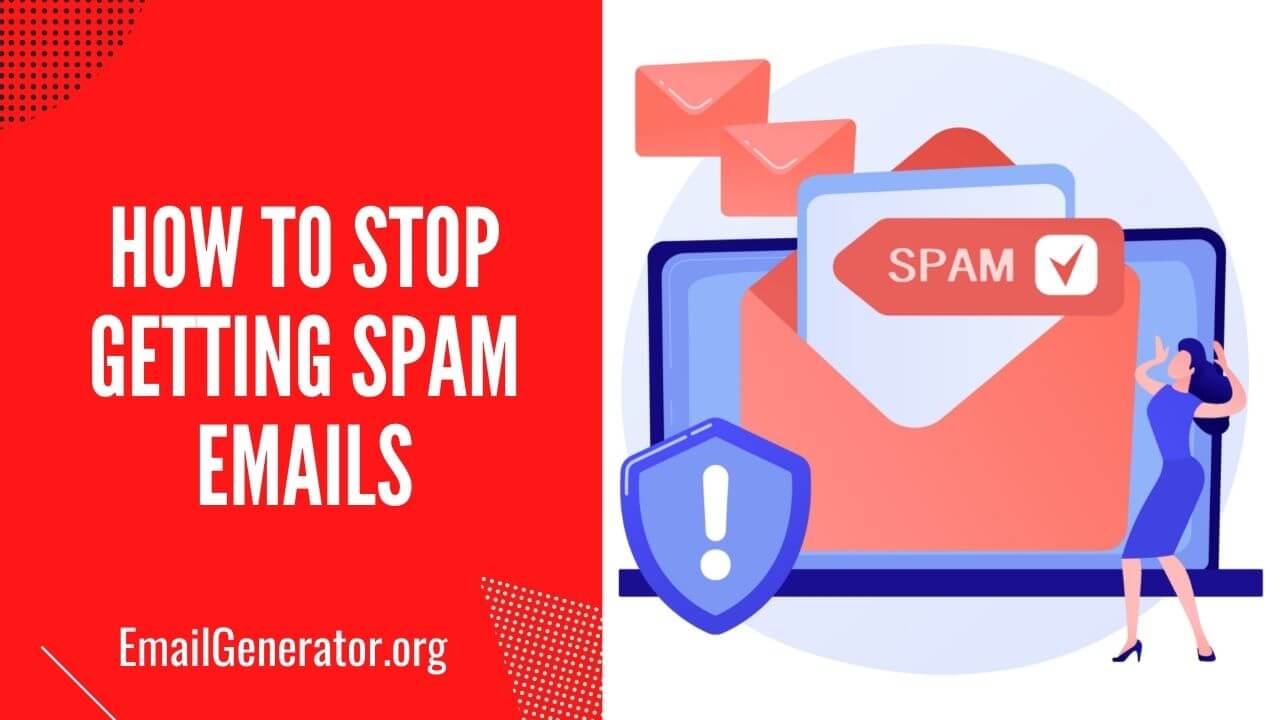What Makes an edu Email Address So Valuable?
An edu email address is much more than just a student’s email account. Recognized worldwide as a digital key to exclusive resources, substantial discounts, and a host of valuable services, it’s easy to see why these addresses are so coveted. Assigned primarily to students, educators, and academic staff, edu email addresses signify access to an educational institution and grant unique benefits that aren’t available to the general public.
Why edu Email Addresses Are in High Demand
Edu email addresses carry a sense of legitimacy and authenticity, signaling the user’s affiliation with an educational institution. This association has led companies to offer specific benefits for these users, aiming to support academic growth and professional development. Students, professionals, and even non-students seek out edu email addresses for access to discounted software, streaming services, and premium tools. In essence, it has become a digital credential that opens doors to opportunities, both educational and financial.
Top Benefits of Owning an edu Email: Discounts, Software, and Academic Resources
Owning an edu email is a gateway to exclusive benefits. With it, users can access discounts on premium software like Microsoft Office, Adobe Creative Cloud, and Amazon Prime. Many academic databases also offer reduced or free access to those with an edu email, allowing students and professionals to utilize research journals, educational materials, and e-books. Additionally, these email addresses provide students with powerful tools for networking, enabling them to create profiles on platforms like LinkedIn and GitHub with student benefits. This alone makes it invaluable for those looking to advance their careers with high-quality resources.
How to Get Started: Is It Possible for Non-Students to Get an Edu Email?
While edu emails are predominantly available to students and educators, some community colleges, online courses, and educational programs offer legitimate access to edu emails upon enrollment. For non-students, options may include enrolling in a low-cost course at a community college or registering for a verified online course. While this approach requires some initial investment, it ensures a lawful, secure method to acquire a genuine edu email.
What is an edu Email Generator, and How Does It Work?
Understanding edu Email Generators: Features and Functions Explained: Edu email generators are online tools or platforms that assist users in creating an edu email address, often bypassing traditional enrollment requirements. By simulating the academic eligibility that institutions require, some generators create temporary edu emails or provide workaround methods to obtain one. Typically, these generators may ask for basic information and generate a temporary edu address based on the data provided. Some tools focus on creating short-term emails, while others attempt to generate longer-lasting accounts.
Why People Use edu Email Generators: Common Motivations and Benefits: The primary motivation behind using an edu email generator is access to student-exclusive deals and discounts. For students unable to obtain an edu email through their institution or for individuals outside academia, generators offer a tempting shortcut. From free trials of high-priced software to discounts on services like streaming platforms and storage solutions, an edu email generator can offer immediate access to a host of valuable perks. Additionally, some people may seek edu emails to gain temporary access to research databases and academic resources.
Important Features to Look for in an edu Email Generator: A reliable edu email generator should prioritize user privacy and security while offering high success rates. Look for features such as strong data protection, ease of use, and compatibility with various discount services. Additionally, a generator that offers support for troubleshooting can be advantageous, as many generated emails are temporary or may encounter access issues. Also, be wary of generators that require sensitive personal information, as data security should be a top priority.
Legal and Privacy Concerns with edu Email Generators
Is It Legal to Use an Edu Email Generator? Key Considerations: Using an edu email generator can present legal grey areas. In many cases, these generators simulate academic affiliation without actual enrollment, which may violate the terms of the use of some services. Accessing benefits through a generated edu email may contravene company policies, potentially leading to account suspension or revocation of privileges. It is essential to understand the ethical and legal implications before opting to use a generator.
Privacy Concerns: How Generators Handle Your Data and What You Should Know: Privacy is a significant concern when using any online generator. As these tools often request personal information, such as names and addresses, users should investigate the platform’s data handling practices. Many free generators may compromise user data security to fund operations, potentially selling information to third parties or subjecting users to spam. Always choose a generator with a clear, transparent privacy policy to protect your data.
Risks Involved: What Happens if Your edu Email is Flagged or Revoked: Using an edu email generator can lead to the risk of flagging, suspension, or deletion of the generated account. Companies that detect misuse or non-student activity through an edu email may block access, and some platforms reserve the right to impose additional penalties. Repeated misuse of generated edu emails can result in blacklisting or denial of discounts on future accounts. Ensuring responsible and ethical use is essential to avoid penalties.
Alternative Ways to Get an edu Email Address Without a Generator
How to Enroll in Short Courses or Online Programs for an Edu Email: Some educational institutions grant edu emails to those who enroll in short courses or online programs. Platforms such as Coursera and edX partner with universities and occasionally offer edu emails upon enrollment. Community colleges often provide affordable programs that include access to a legitimate edu email, which is a lawful and straightforward way to gain benefits without risking penalties.
Community Colleges and Low-Cost Learning Platforms Offering edu Emails: Many community colleges offer inexpensive courses that come with an edu email, making this an accessible option for those interested in a legitimate edu email. Short, affordable courses are available at institutions across the U.S., providing users with legitimate academic affiliation while supporting their educational and career goals.
Quick Verification Tips to Check if Your edu Email is Valid for Discounts: After acquiring an edu email, ensure it’s eligible for discounts by verifying it on websites offering student discounts. Many platforms, like UNiDAYS and Student Beans, offer simple verification processes that confirm whether your edu email qualifies. This step ensures that you can fully benefit from all potential perks associated with a student email.
Step-by-Step Guide: Using an edu EmailGenerator.org Safely
How to Set Up Your edu Email Using a Generator in 5 Easy Steps
1. Visit our reliable edu email generator platform.
2. Navigate to the page for creating a custom temporary edu email address.
3. Complete any verification steps as instructed by the generator.
4. Confirm the functionality of the edu email by logging into a platform that accepts it.
5. Avoid using sensitive data when accessing online resources through the generated email.
Troubleshooting Common Setup Issues and Getting the Most Out of Your Email: Issues such as unrecognized email addresses or rejected discounts can occur. Always check if the edu email is still active, as some generated emails may expire. Attempting to use another generator or verifying through a student discount site can also be effective.
Security Best Practices: How to Protect Your edu Email and Personal Information: It’s vital to maintain security by regularly changing passwords and avoiding sharing the edu email with untrustworthy services. Additionally, enabling two-factor authentication (2FA) can protect against unauthorized access, safeguarding both personal and academic resources.
Maximizing the Benefits of Your edu Email
Exclusive Discounts and Freebies: How to Get Student Perks: With an edu email, explore exclusive offers on platforms like Apple Music, Spotify, and Amazon Prime. These discounts allow students to save significantly, making it easier to access premium content and services on a budget.
Accessing Premium Software: Microsoft, Adobe, and Amazon Deals: Many premium software providers offer free or discounted access to students. Platforms like Microsoft Office 365 and Adobe Creative Cloud provide access to tools critical for learning and professional development.
Using Your edu Email for Academic Resources and Research Databases: Access academic journals, research articles, and e-books through your edu email. Many libraries, such as JSTOR and ProQuest, allow students to access extensive databases, making an edu email invaluable for academic and professional research.
Networking Opportunities: How an edu Email Can Help Build Your Professional Profile: An edu email establishes credibility, particularly on networking sites like LinkedIn. Many professional groups and alumni networks are more accessible with an edu email, offering valuable networking and career opportunities.
Protecting Your edu Email and Avoiding Common Scams
Privacy Tips for edu Email Holders: How to Stay Safe Online: Using strong, unique passwords and two-factor authentication are essential in protecting your edu email. Avoid clicking on suspicious links or downloading untrusted attachments.
Spotting Scams: Common edu Email Scams and How to Avoid Them: Scams targeting edu emails may include phishing attempts that mimic legitimate academic institutions. Always verify sender details and report suspicious emails to protect your data.
What to Do if Your edu Email is Compromised: If compromised, change your password immediately and enable 2FA. Inform your institution or email provider, and monitor for unusual activity to secure your account effectively.
Is an edu Email Generator Right for You?
Pros and Cons: Making an Informed Choice About edu Email Generators: Using an edu email generator can offer quick access to student perks, but it comes with potential legal and security risks. Assess the pros and cons carefully before proceeding.
Balancing Benefits with Legal and Privacy Considerations: While edu email generators are a popular option, legitimate alternatives such as enrolling in courses provide long-term access to benefits while ensuring safety.
Additional Resources and Support: Explore online learning platforms or contact your local community college for affordable courses that grant edu email access.


